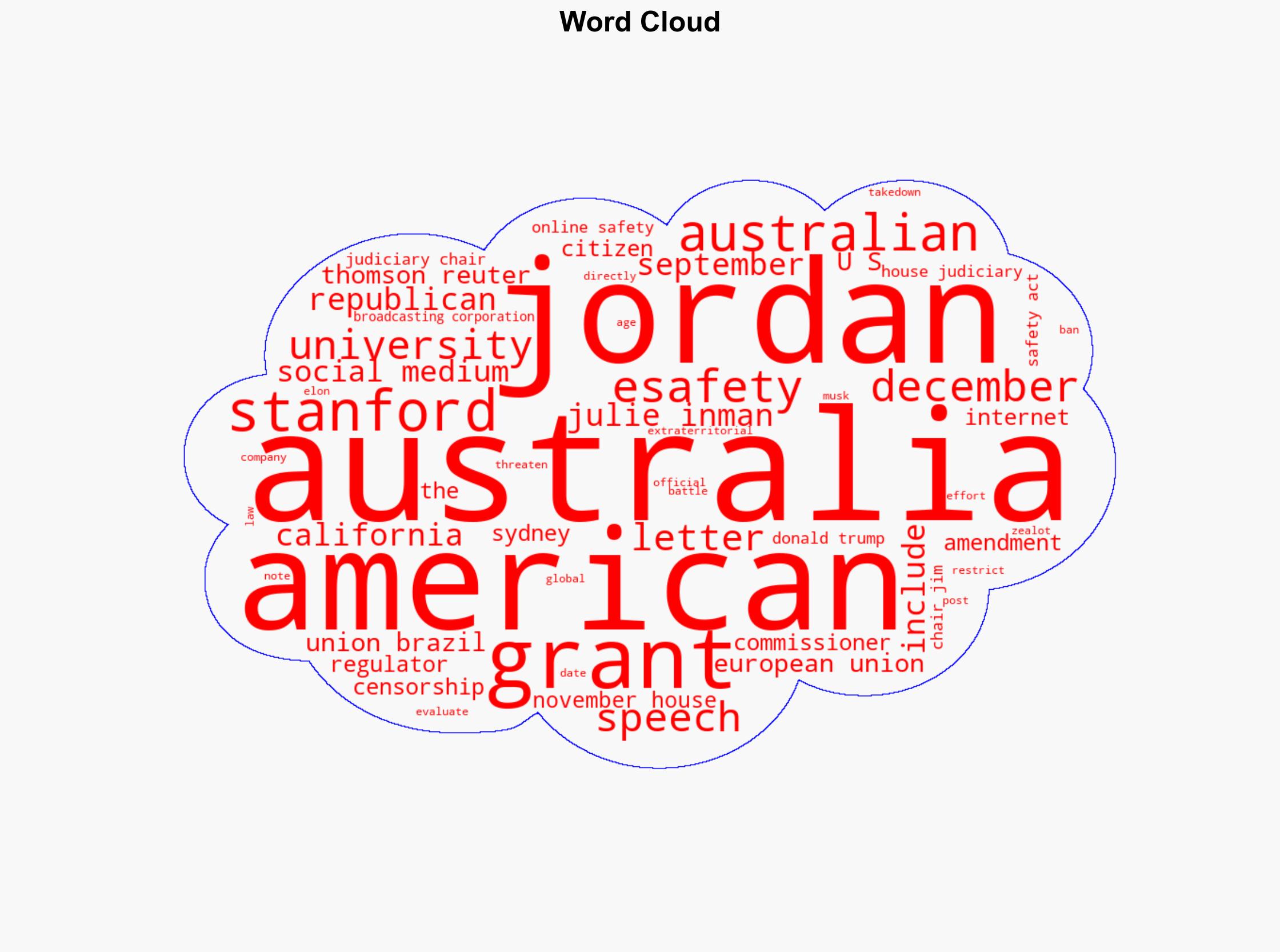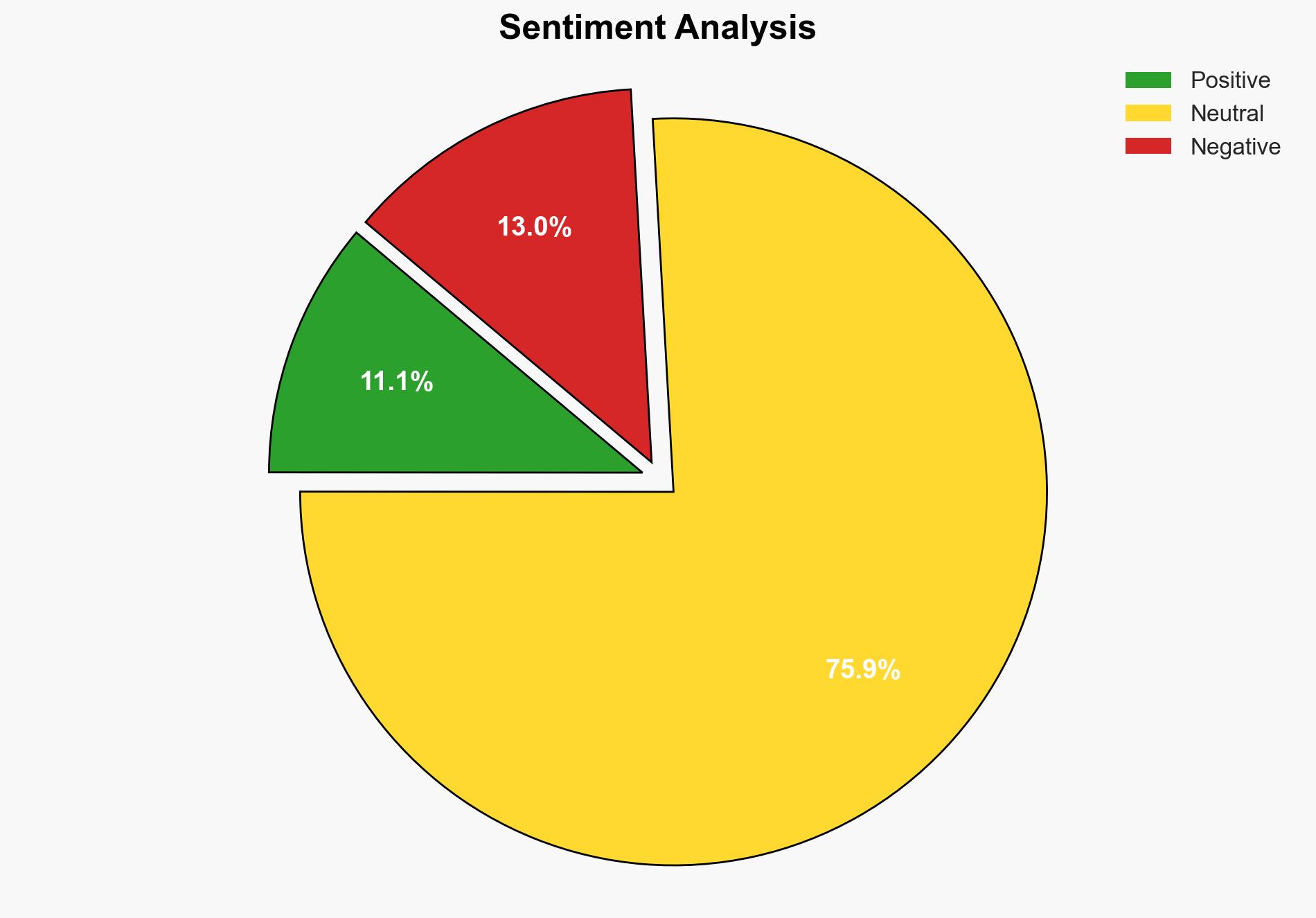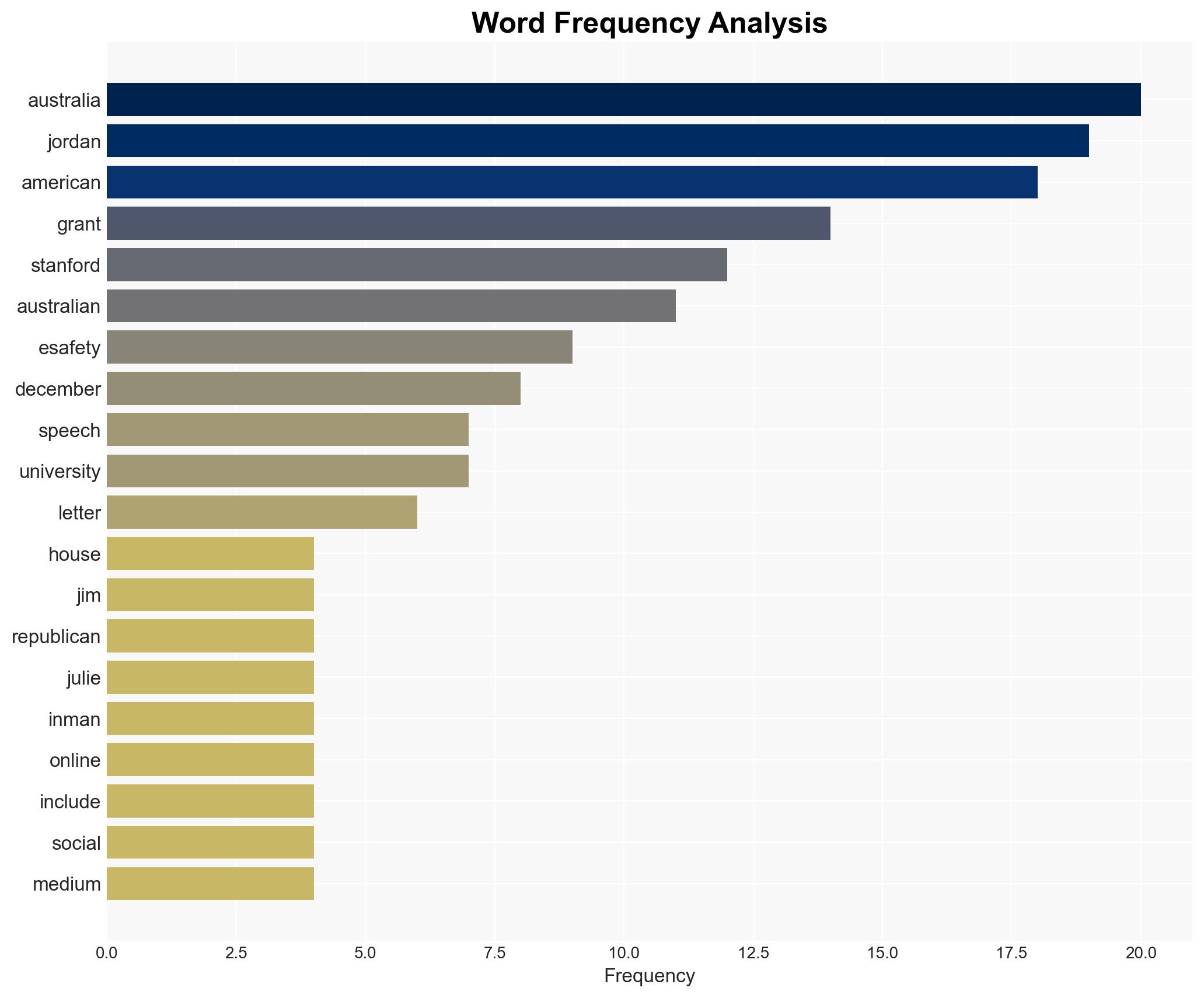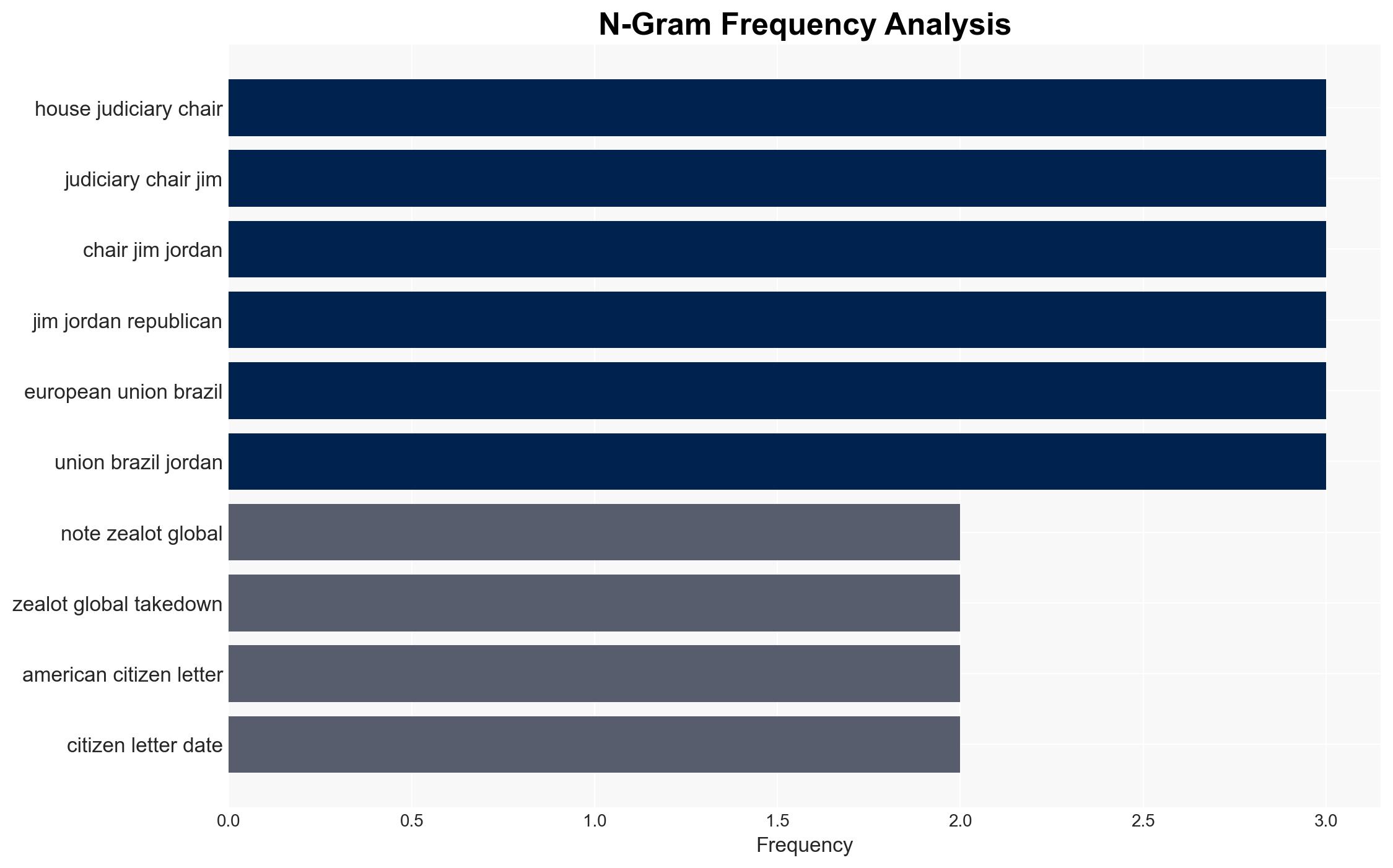US Congress seeks testimony from Australia’s internet regulator – Japan Today
Published on: 2025-11-20
AI-powered OSINT brief from verified open sources. Automated NLP signal extraction with human verification. See our Methodology and Why WorldWideWatchers.
Intelligence Report:
1. BLUF (Bottom Line Up Front)
With a moderate confidence level, it is assessed that the U.S. Congress’s interest in Australia’s internet regulation is primarily driven by concerns over potential extraterritorial impacts on American free speech rights. The most supported hypothesis suggests that this is a preemptive measure to safeguard the First Amendment rights of U.S. citizens against foreign regulatory influences. Recommended actions include diplomatic engagement with Australian counterparts to clarify jurisdictional boundaries and potential impacts on U.S. citizens.
2. Competing Hypotheses
Hypothesis 1: The U.S. Congress is primarily concerned with protecting American free speech from foreign influence, particularly from Australia’s eSafety Commissioner’s actions, which are perceived as overreaching and potentially infringing on First Amendment rights.
Hypothesis 2: The U.S. Congress’s actions are politically motivated, aiming to leverage concerns about foreign influence to gain domestic political advantage, particularly among constituencies sensitive to free speech issues.
Hypothesis 1 is more likely due to the direct references to the First Amendment and specific concerns about extraterritorial jurisdiction in the congressional letter. The focus on legal and regulatory implications suggests a genuine concern over potential impacts on U.S. citizens.
3. Key Assumptions and Red Flags
Assumptions: It is assumed that the U.S. Congress’s actions are based on a genuine concern for First Amendment rights and not solely political maneuvering. It is also assumed that Australia’s regulatory actions have the potential to impact U.S. citizens.
Red Flags: The involvement of high-profile figures like Elon Musk and Donald Trump as advisors may indicate potential bias or political motivations. The lack of direct evidence of Australian regulatory actions affecting U.S. citizens could suggest an overestimation of the threat.
4. Implications and Strategic Risks
The primary risk is a diplomatic strain between the U.S. and Australia, potentially affecting broader bilateral relations. There is also a risk of escalating tensions in international forums regarding internet governance and free speech. Cyber and informational threats could arise if regulatory actions are perceived as overreaching, leading to increased scrutiny and potential retaliatory measures by affected parties.
5. Recommendations and Outlook
- Engage in diplomatic discussions with Australia to clarify the scope and intent of their internet regulations, focusing on preventing extraterritorial impacts on U.S. citizens.
- Monitor developments in international internet governance forums to anticipate and mitigate potential impacts on U.S. interests.
- Best Case: Diplomatic engagement leads to mutual understanding and respect for jurisdictional boundaries.
- Worst Case: Escalation of tensions leads to broader international conflicts over internet governance.
- Most Likely: Continued dialogue and negotiation result in a balanced approach to internet regulation respecting both national and international concerns.
6. Key Individuals and Entities
Jim Jordan (House Judiciary Chair), Julie Inman Grant (Australian eSafety Commissioner), Elon Musk, Donald Trump.
7. Thematic Tags
Structured Analytic Techniques Applied
- Cognitive Bias Stress Test: Expose and correct potential biases in assessments through red-teaming and structured challenge.
- Bayesian Scenario Modeling: Use probabilistic forecasting for conflict trajectories or escalation likelihood.
- Network Influence Mapping: Map relationships between state and non-state actors for impact estimation.
Explore more:
National Security Threats Briefs ·
Daily Summary ·
Support us





